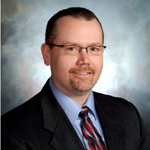Setting Ethical Expectations for Pension Fund Trustees
Another week brings an additional story of greed leading to illegal and unethical actions. According to an article in the Plain Dealer, Nicholas DelBrocco recently was charged with providing bribes to former labor executive Robert Peto in exchange for DelBrocco’s firm receiving “millions of dollars worth of investment funds and consulting business from the regional carpenter’s union Peto once headed.” Peto served as a trustee for the union pension, annuity, and target advancement funds, and frequently voted to place business with DelBrocco’s firm.
Although “Peto has not been charged with a crime,” he likely knew that accepting these gifts could potentially impact his independence when casting votes in connection with DelBrocco’s firm. Just because an action is not prohibited by a law does not mean such actions are ethical. Which raises this question: What can pensions or foundations do to set appropriate ethical expectations for their trustees?
Cayman Islands Chamber a Good Example to Follow
A pension could follow the example set by the Cayman Islands Chamber of Commerce Pension Plan and adopt the CFA Institute Code of Conduct for Members of a Pension Scheme Governing Body, also known as the “Pension Trustee Code.” As explained by Bill Fleury, the Chamber Pension Plan’s COO and general manager, “taking on the Code is important to show how the Chamber Pension Plan is committed to the highest levels of oversight.”
“In addition, it provides an ethical framework for governing board members to follow while executing their responsibilities to the Plan,” Fleury adds.
The CFA Institute Pension Trustee Code outlines 10 fundamental ethical principles for fund trustees, including:
- Act with prudence and reasonable care
- Maintain independence and objectivity by, among other actions, avoiding conflicts of interest, refraining from self-dealing, and refusing any gift that could reasonably be expected to affect loyalty
- Deal fairly, objectively, and impartially with all participants and beneficiaries
- Communicate with participants, beneficiaries, and supervisory authorities in a timely, accurate, and transparent manner
Members of the Cayman Islands CFA Society were instrumental in helping the Chamber Pension Plan decide to adopt this Code. As CFA Charterholders, the society members must adhere to high ethical standards, and their efforts are leading to improved actions by others. Both the society and Chamber Pension Plan should be commended for taking these critical steps to help restore trust in the capital markets.
A Resource for Other Trustees
Pension funds are not the only organizations that often have volunteer trustees with some oversight of an organization’s invested assets. For charitable organizations, CFA Institute has developed the Investment Management Code of Conduct for Endowments, Foundations and Charitable Organizations. This Code provides a similar ethical framework as the one related to pensions, with specific investment-management-related standards for these five overarching principles:
- Act with loyalty and proper purpose
- Act with skill, competence, prudence, and reasonable care
- Abide by all laws, rules, regulations, and founding documents
- Show respect for all stakeholders
- Review investment strategy and practices regularly
The Endowments Code focuses on the investment management actions, as opposed to the broader responsibilities, of the pension-related code to accommodate the diverse nature of organizations for which this Code may apply. Adoption is encouraged for any organization with longer-term financial resources that support beneficiary commitments including endowments, independent foundations, philanthropies, and public funds. The provisions of the Code helps volunteers understand what actions are expected to ward off unscrupulous attempts to influence their decision-making process.
Staying out of the Headlines
Conflicted relationships with individuals and firms outside the organization are sure to create pressures on those involved. Before accepting any personal gift from someone who does business with your organization or disadvantages one beneficiary group over another, it’s important to ask how an outside party would view the objectivity of that decision. Our best-practice guidance is to decline offers that others would consider as having an influence on the decision-making process. If he knew then what he knows now, I wonder if Mr. Peto would make the same decisions today.


I am a member of the ohio carpenters pension plan who is inquiring about the fairness and transparency regarding the trustees of our plan. It seems to me that the working generation myself included are bearing the brunt of our deficit. I am just looking for some clarification on what we have been told. If you can help me and my fellow members it would be greatly appreciated. Thank you